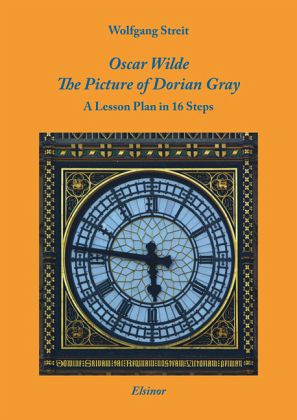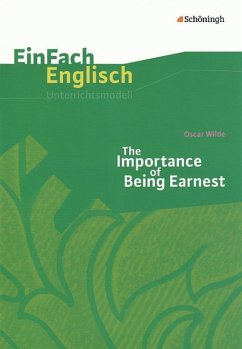
Oscar Wilde: The Picture of Dorian Gray
A Lesson Plan in 16 Steps
Vorlage: Wilde, Oscar
Versandkostenfrei!
Versandfertig in 3-5 Tagen
14,00 €
inkl. MwSt.

PAYBACK Punkte
0 °P sammeln!
This lesson plan offers a practice-checked set of multilateral worksheets and teaching proposals for reading in the class room Oscar Wilde's The Picture of Dorian Gray. Based on the original Lippincott's version of the novel, but useful also for all other editions, all material is copyright-free, ready to use and fully supplied with didactic directions and solution proposals. Teachers have leeway to choose from a great variety of tasks based on, and enhancing different skills of their students. Thus classes can be engaged in roughly 20 lessons with activities such as a historically contextuali...
This lesson plan offers a practice-checked set of multilateral worksheets and teaching proposals for reading in the class room Oscar Wilde's The Picture of Dorian Gray. Based on the original Lippincott's version of the novel, but useful also for all other editions, all material is copyright-free, ready to use and fully supplied with didactic directions and solution proposals. Teachers have leeway to choose from a great variety of tasks based on, and enhancing different skills of their students. Thus classes can be engaged in roughly 20 lessons with activities such as a historically contextualizing web quest, inspiring close-reading and creative-writing tasks, the comprehensive reconstruction of the figure constellation, the sensible assessment of Wilde's aesthetics, and an activating, though moderate performance practice. Tips and recommendations for further steps round up this teacher's manual.












